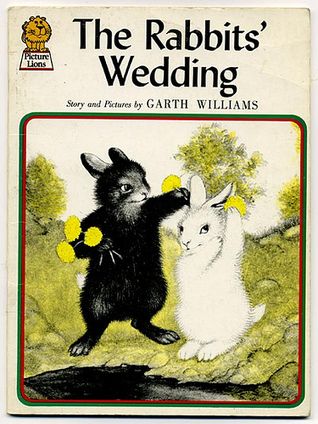Sounds ridiculous? Of course it does. But this is what happened with Garth Williams’ 1958 children’s book The Rabbits’ Wedding. That’s it. That’s the story. This is what a group of people in Alabama, led by State Senator Edward Oswell Eddins, found so enraging. Both the story and the illustrations are the work of Garth Williams, illustrator of beloved children’s classics Charlotte’s Web, Stuart Little, and Little House on the Prairie. It was the only one of his books to be banned. Library Journal‘s starred review was particularly complimentary, calling it “a large picture book of unusual beauty […] mysterious, enchanting […] A book which will delight the youngest ones.” Only the Bulletin for the Center for Children’s Books’ review was negative, both of the story itself and of the message the reviewer inferred: “While the book gives a very simple concept of love and marriage, confusion could arise about marital practices in the human and animal worlds.” One wonders if this is how the White Citizens Council of Montgomery, Alabama, heard of this book. However it came to their attention, they decided to counter a sweet children’s story about two rabbits’ love with hatred. He, along with the white Citizens Council of Montgomery, challenged the book and set out to have it banned. When Emily Wheelock Reed, director of the Alabama Public Library Service Division, defended the book, Eddins claimed that she “put stock in racial incorporation” and said that “this book and many others should be taken off the shelves and burned.” Ah, yes. Burning books. Where have I heard that one before. The white Citizens Council and Eddins got their wish: The Rabbits’ Wedding was banned from all libraries in Alabama. Reed found a way to get around that, however; she put it on reserve, so that it would still be available for librarians, but she could no longer keep it in general circulation. She then became a target. That same year, she distributed a reading list which included Rev. Dr. Martin Luther King Jr.’s Stride Toward Freedom; this awoke the Council’s ire once again. Then I realized how little things have changed: book banning is at an all-time high in the United States, basic human rights are contested every day, and hate is still prevalent in society. It was discouraging, for sure, but it reminded me of the necessity of never taking human decency for granted — and of the importance of calling out bigotry when you see it, of fighting book bans, and, oh yeah, of learning about how color works in picture books.
